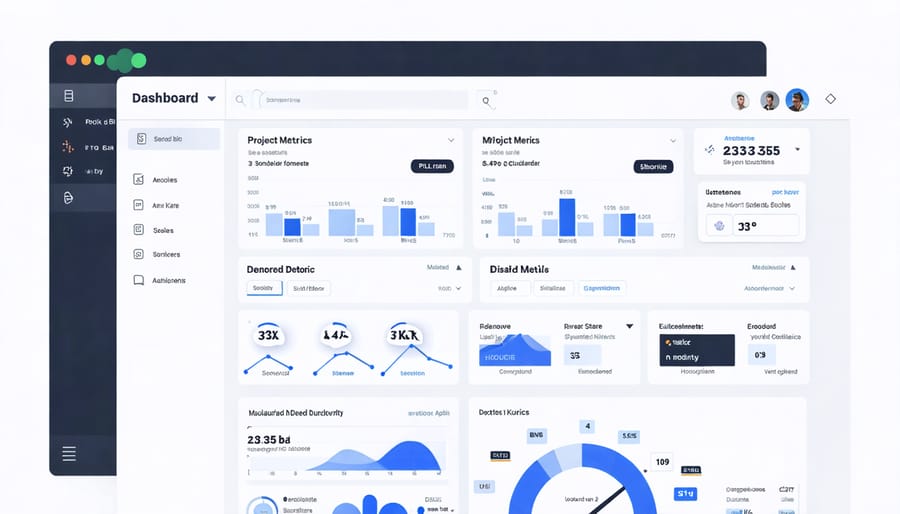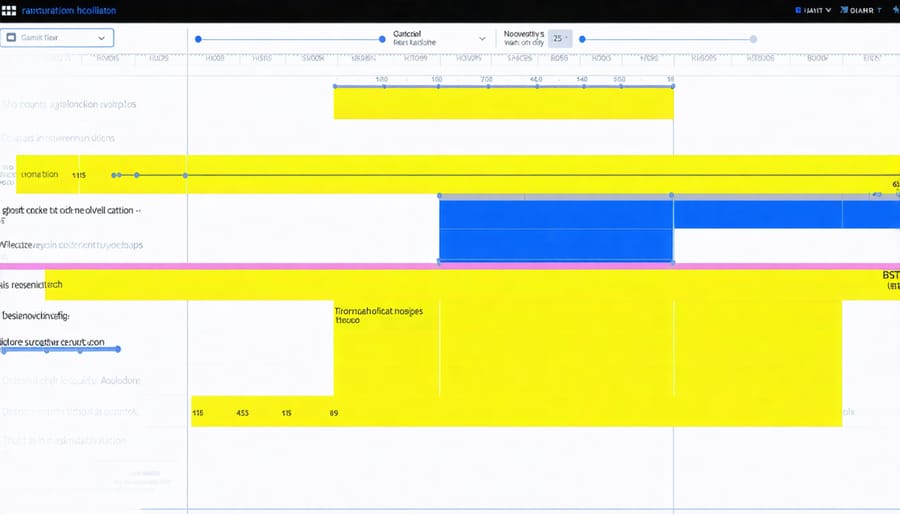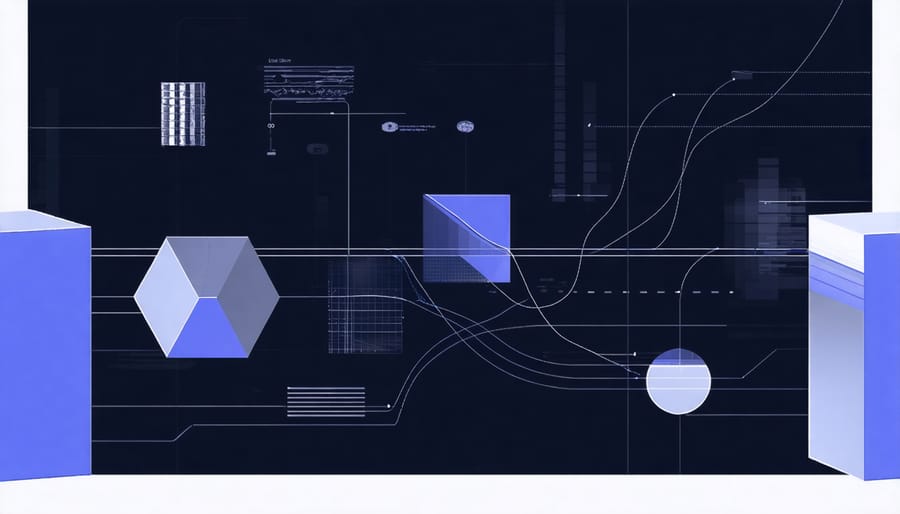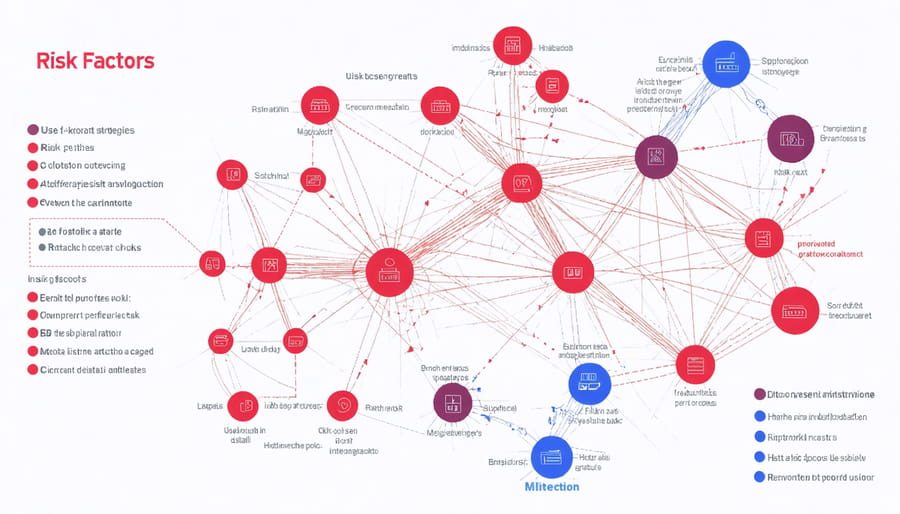Master the nine project management knowledge areas to achieve successful project delivery in today’s technology-driven construction landscape. From scope management to stakeholder engagement, these fundamental domains form the backbone of modern project execution, enabling construction professionals to navigate complexity with precision and confidence.
Digital transformation has revolutionized how we approach these knowledge areas, introducing advanced analytics, cloud-based collaboration tools, and artificial intelligence to enhance traditional project management methodologies. Construction industry leaders who strategically integrate these technologies across all nine domains consistently deliver projects with greater efficiency, reduced risk, and improved stakeholder satisfaction.
This comprehensive guide examines how each knowledge area intersects with cutting-edge construction technologies, offering practical insights for seasoned project managers and emerging industry professionals alike. Whether managing multi-million dollar developments or specialized construction projects, understanding these core competencies – and their modern applications – is crucial for maintaining competitive advantage in an increasingly digital construction environment.
Integration Management in the Digital Age
Advanced Integration Tools
Modern project integration demands sophisticated technological solutions that streamline workflows and enhance collaboration. Leading the way are AI-powered project management tools that offer predictive analytics and automated resource allocation. Platforms like Autodesk Construction Cloud and Procore have revolutionized how construction teams integrate various project components, from BIM coordination to real-time cost tracking.
Cloud-based integration solutions now enable seamless data exchange between stakeholders, while digital twins provide comprehensive project visualization and scenario planning capabilities. Advanced APIs and middleware solutions facilitate smooth connectivity between different software systems, ensuring that scheduling, cost management, and quality control processes work in harmony.
Enterprise-level integration platforms increasingly incorporate blockchain technology for secure contract management and Internet of Things (IoT) sensors for real-time site monitoring. These tools not only enhance project visibility but also provide actionable insights through sophisticated analytics dashboards, enabling project managers to make data-driven decisions and maintain better control over project outcomes.

Scope Management Technologies
AI-Powered Scope Control
Recent advances in AI applications in project management have transformed how construction teams handle scope control and management. Machine learning algorithms now analyze historical project data to predict potential scope creep and identify risk factors before they impact project deliverables. These AI-powered systems can process thousands of project documents, specifications, and change orders to detect patterns and inconsistencies that human project managers might miss.
Advanced natural language processing capabilities enable AI systems to review contract documents and automatically flag scope-related discrepancies. This technology assists project managers in maintaining clear scope boundaries and ensures all stakeholders remain aligned with project objectives. Real-time monitoring systems powered by AI can track work progress against defined scope parameters, automatically generating alerts when activities deviate from the approved scope baseline.
Construction firms implementing AI-driven scope control report up to 30% reduction in scope-related disputes and a significant improvement in change order management efficiency. The technology’s ability to provide data-driven insights helps teams make informed decisions about scope modifications while maintaining project constraints and stakeholder expectations.

Time Management Innovation
Automated Scheduling Systems
Automated scheduling systems have revolutionized project management in the construction industry by streamlining workflow processes and enhancing project coordination. These sophisticated tools integrate critical path methodology, resource allocation, and real-time progress tracking to create dynamic project timelines that adapt to changing conditions.
Modern scheduling platforms offer features such as cloud-based collaboration, mobile accessibility, and automated notifications for milestone updates. Construction managers can leverage these systems to optimize resource utilization, identify potential scheduling conflicts, and implement proactive solutions before delays occur. Key benefits include reduced manual data entry, improved accuracy in timeline projections, and enhanced stakeholder communication.
Leading solutions incorporate artificial intelligence and machine learning capabilities to analyze historical project data, predict potential bottlenecks, and suggest optimal scheduling adjustments. These systems can automatically recalculate project timelines when changes occur, ensuring all team members work with the most current information.
Integration with other project management tools, such as BIM software and cost management systems, creates a comprehensive project control environment that supports informed decision-making and maintains project momentum.
Cost Management Solutions
Real-time Cost Tracking
Modern construction projects benefit significantly from advanced real-time cost monitoring technologies that transform how project managers track and control expenses. Cloud-based platforms now enable instantaneous tracking of labor hours, material costs, and equipment utilization, providing unprecedented visibility into project financials.
These digital solutions integrate with procurement systems, accounting software, and field reporting tools to create a comprehensive financial management ecosystem. Project managers can access real-time dashboards showing cost variances, earned value metrics, and budget forecasts, allowing for immediate corrective actions when deviations occur.
Machine learning algorithms analyze historical cost data to predict potential overruns and suggest optimization strategies. IoT sensors and automated data collection systems further enhance accuracy by eliminating manual entry errors and reducing reporting delays. This technological evolution has made it possible to maintain strict budget control even on complex projects with multiple stakeholders and concurrent activities.
The implementation of these systems has shown to reduce cost overruns by up to 15% through early detection of budget anomalies and improved decision-making capabilities. For construction professionals, this represents a significant advancement in financial control and project success rates.

Quality Management Systems
IoT in Quality Control
IoT devices are revolutionizing quality control in construction project management by providing real-time monitoring and data-driven insights. Smart sensors deployed across construction sites continuously track environmental conditions, material performance, and structural integrity. These devices measure critical parameters such as concrete curing conditions, structural load distribution, and material moisture content, enabling project managers to make informed decisions quickly.
The integration of IoT technology with quality management systems allows for automated compliance monitoring and instant alerts when parameters deviate from specified standards. For example, sensors embedded in concrete can monitor temperature and humidity levels during curing, while strain gauges provide continuous feedback on structural behavior. This proactive approach helps identify potential quality issues before they escalate into costly problems.
Project managers can access this data through centralized dashboards, facilitating better documentation and reporting while reducing the risk of human error in quality control processes.
Resource Management Platforms
Cloud-Based Resource Planning
Cloud-based resource planning solutions have revolutionized how construction projects manage and allocate resources. These platforms enable real-time tracking of equipment, materials, and personnel across multiple project sites while providing instant visibility into resource availability and utilization rates. Leading construction firms are leveraging cloud solutions to optimize resource scheduling, reduce equipment downtime, and prevent resource conflicts across projects.
Key advantages include automated resource leveling, predictive maintenance scheduling, and integrated capacity planning. Project managers can access comprehensive dashboards that display resource allocation metrics, helping them make data-driven decisions about resource deployment. The cloud infrastructure also facilitates seamless collaboration between site teams and office staff, ensuring that resource requirements are communicated and addressed promptly.
By implementing cloud-based resource planning tools, construction companies typically report a 15-20% improvement in resource utilization and significant reductions in scheduling conflicts.
Communications Management Tools
Unified Communication Solutions
In modern construction project management, unified communication solutions serve as the backbone of effective team collaboration and information sharing. These integrated platforms combine various communication tools, including real-time messaging, video conferencing, document sharing, and mobile applications, into a single cohesive system. Cloud-based project management software enables stakeholders to access critical information, update project status, and participate in discussions regardless of their location. Construction teams particularly benefit from features like BIM integration, digital markup tools, and instant field reporting capabilities. By centralizing communications through a unified platform, project managers can significantly reduce information silos, minimize miscommunication risks, and maintain clear audit trails of all project-related discussions and decisions. This streamlined approach ensures that all team members, from site supervisors to executives, remain aligned with project objectives and can respond promptly to emerging challenges.

Risk Management Technologies
Predictive Risk Analytics
Predictive risk analytics leverages historical project data and advanced algorithms to identify potential risks before they materialize. In construction project management, this technology analyzes patterns from past projects, weather data, resource allocation histories, and performance metrics to forecast probable risk scenarios. Machine learning models can process thousands of data points to identify correlations between project variables and risk outcomes, enabling proactive risk mitigation strategies. Construction firms increasingly employ these analytics tools to evaluate subcontractor performance, material delivery delays, and safety incidents. Real-time monitoring systems integrate with predictive analytics platforms to provide early warning signals for emerging risks, allowing project managers to implement preventive measures before issues escalate. This data-driven approach has demonstrated significant improvements in risk management effectiveness, with some organizations reporting up to 30% reduction in risk-related project delays.
The successful integration of the nine project management knowledge areas with modern technology represents a crucial evolution in construction project management. As the industry continues to embrace digital transformation, these fundamental areas become more interconnected and efficient through technological solutions. Cloud-based project management platforms, Building Information Modeling (BIM), and artificial intelligence now enable real-time collaboration, precise cost tracking, and predictive risk analysis.
By leveraging these technological advancements, project managers can better coordinate stakeholders, optimize resource allocation, and maintain quality standards while reducing potential delays and cost overruns. Mobile applications and IoT devices facilitate immediate communication and data collection from the field, while automated reporting systems ensure transparency and accountability across all knowledge areas.
Looking ahead, the construction industry must continue to adapt these knowledge areas to emerging technologies while maintaining their core principles. This balanced approach ensures that projects benefit from innovation without compromising the established best practices that have proven successful over time. The key to future success lies in harmonizing traditional project management expertise with digital tools, creating a more efficient, sustainable, and profitable construction environment.

